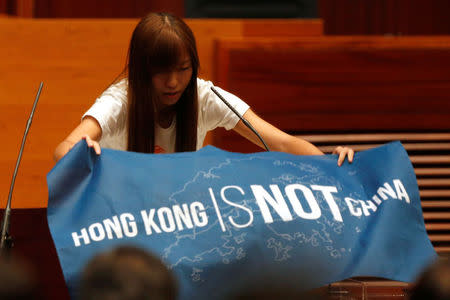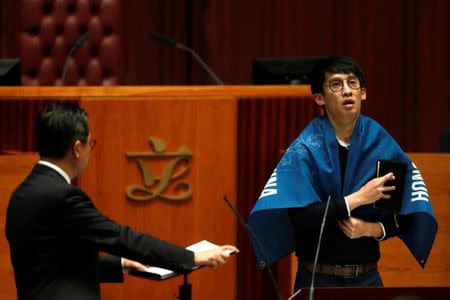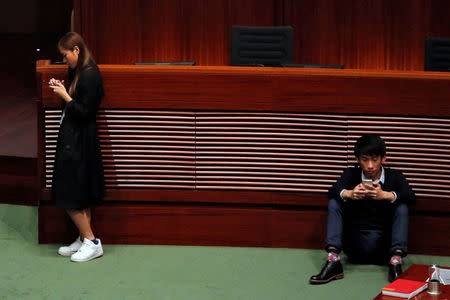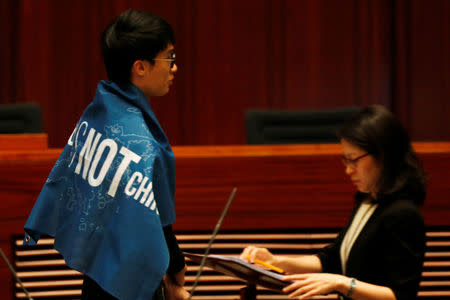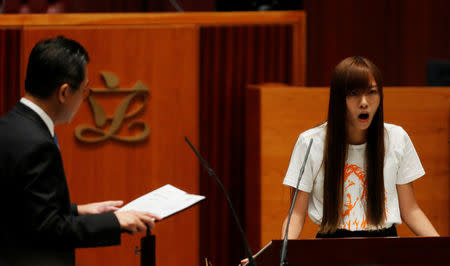China steps up rhetoric in criticism of young Hong Kong lawmakers
HONG KONG (Reuters) - China on Friday expressed "great indignation and strong condemnation" of two Hong Kong lawmakers who raised the disputed issue of independence this week at their official swearing-in ceremony. The topic of independence was once regarded as taboo in the former British colony, now governed under a "one country, two systems" principle since its return to Chinese rule in 1997. But some young people in the financial hub have begun calling for greater autonomy for the city, ranging from self-determination to independence, after months of pro-democracy protests in 2014 failed to lead to any concessions from Beijing. On Wednesday, two of 70 newly elected legislators, 25-year-old Yau Wai-ching and 30-year-old Baggio Leung, pledged their allegiance to a "Hong Kong nation" and displayed a "Hong Kong is not China" banner while they took their oaths of office, which were later ruled as invalid by the legislature's head clerk. The official Xinhua news agency on Friday quoted an unnamed officer at the liaison office, Beijing's symbol in Hong Kong, as calling their behaviour "despicable". "Certain legislators-elect openly displayed the relevant banner and promoted Hong Kong independence. This seriously violated the country's constitution, Hong Kong's Basic Law and the relevant laws," the officer said. "We express our great indignation and strong condemnation." The officer also criticised the lawmakers for making the word "China" sound like "Shina," a derogatory term that the Japanese used when they occupied China during World War Two. Yau and Leung have told reporters their oaths should not be ruled invalid based on their choice of clothing, and they blamed their pronunciation on their accent. The pair, along with lawmaker Edward Yiu whose vow was ruled invalid after he added a line about fighting for genuine universal suffrage, will have another chance to swear in next Wednesday. (Reporting by Venus Wu; Editing by Hugh Lawson)

